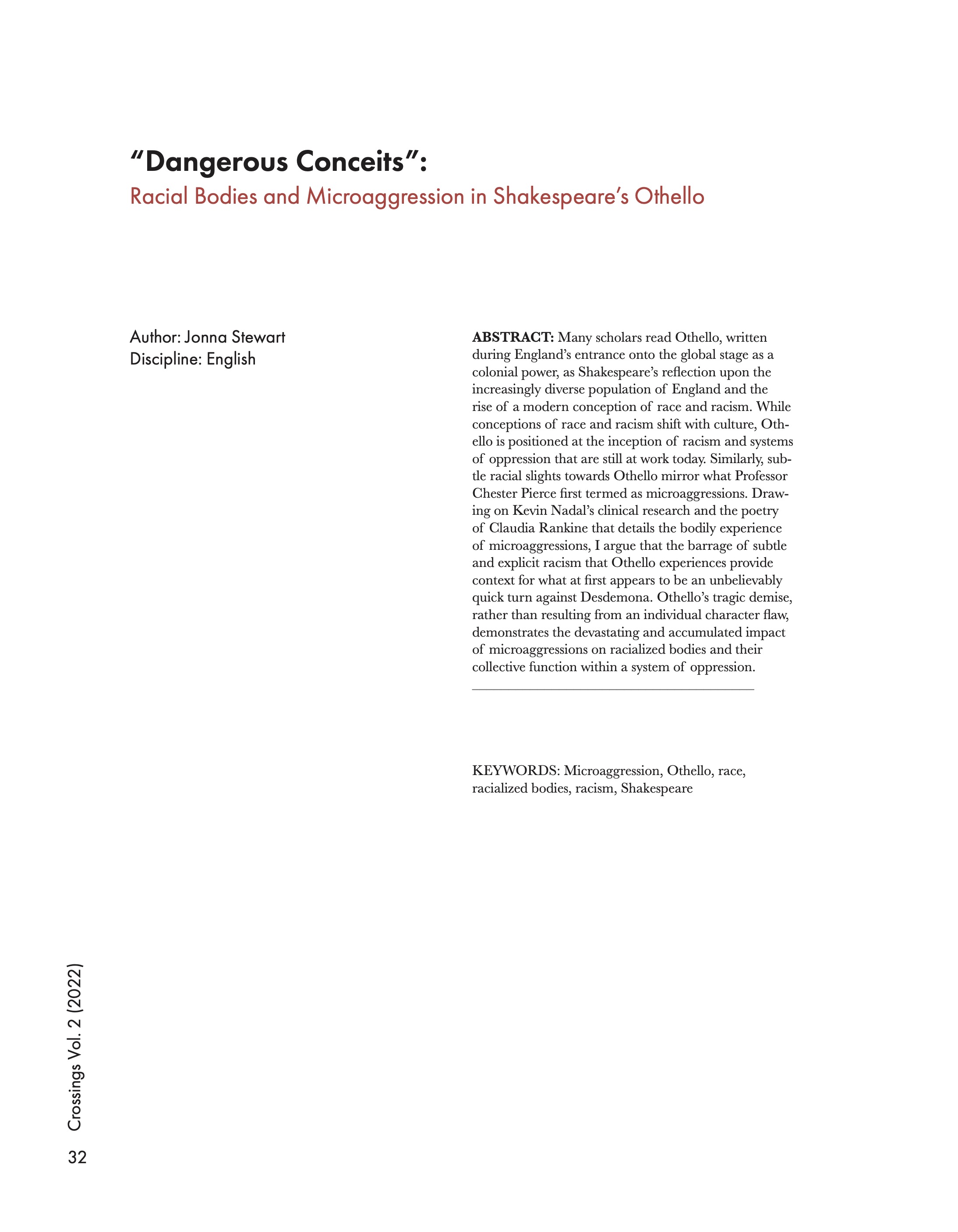“Dangerous conceits”: Racial Bodies and Microaggression in Shakespeare’s Othello
DOI:
https://doi.org/10.29173/crossings98Abstract
Many scholars read Othello, written during England's entrance onto the global stage as a colonial power, as Shakespeare’s reflection upon the increasingly diverse population of England and the rise of a modern conception of race and racism. While conceptions of race and racism shift with culture, Othello is positioned at the inception of racism and systems of oppression that are still at work today. Similarly, subtle racial slights towards Othello mirror what Professor Chester Pierce first termed as microaggressions. Drawing on Kevin Nadal's clinical research and the poetry of Claudia Rankine that details the bodily experience of microaggressions, I argue that the barrage of subtle and explicit racism that Othello experiences provides context for what at first appears to be an unbelievably quick turn against Desdemona. Othello’s tragic demise, rather than resulting from an individual character flaw, demonstrates the devastating and accumulated impact of microaggressions on racialized bodies and their collective function within a system of oppression.

Downloads
Published
Issue
Section
License
Copyright (c) 2022 Jonna Stewart

This work is licensed under a Creative Commons Attribution 4.0 International License.

